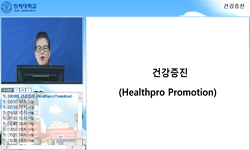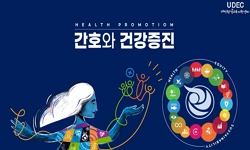대사증후군과 관련이 높은 뇌혈관 질환, 심장 질환, 당뇨병, 고혈압 등의 만성질환의 발생률은 지속적으로 증가하고 있으며, 이는 현 시대의 급속한 인구 고령화 및 평균 수명 증가와 더불어...
http://chineseinput.net/에서 pinyin(병음)방식으로 중국어를 변환할 수 있습니다.
변환된 중국어를 복사하여 사용하시면 됩니다.
- 中文 을 입력하시려면 zhongwen을 입력하시고 space를누르시면됩니다.
- 北京 을 입력하시려면 beijing을 입력하시고 space를 누르시면 됩니다.
https://www.riss.kr/link?id=T15657415
- 저자
-
발행사항
서울 : 중앙대학교 건강간호대학원, 2020
-
학위논문사항
학위논문(석사) -- 중앙대학교 건강간호대학원 , 보건학 전공 , 2020. 8
-
발행연도
2020
-
작성언어
한국어
- 주제어
-
발행국(도시)
서울
-
기타서명
(The) relationship between active health behavior and metabolic syndrome : focused on the survey materials from the Korean National Health & Nutrition Examination Survey for 2018(3rd period)
-
형태사항
iii, 60장 : 삽화, 도표 ; 26 cm
-
일반주기명
중앙대학교 논문은 저작권에 의해 보호받습니다
지도교수: 최병선
참고문헌수록 -
UCI식별코드
I804:11052-000000233039
- DOI식별코드
- 소장기관
-
0
상세조회 -
0
다운로드
부가정보
국문 초록 (Abstract)
우리나라 전 국민을 대표하는 국민건강영양조사 자료에서 2018년도 원시자료를 바탕으로 19세 이상 성인 중 대사증후군 진단을 위해 검진조사를 시행한 대상자를 선별하여 6,004명을 최종 대상자로 선정하였다. 대사증후군과 관련된 위험요인, 특히 개인의 적극적 건강행위 실천이 대사증후군에 미치는 영향을 파악하기 위해 크게 인구사회학적요인, 평소 건강행태요인, 적극적 건강행위 실천요인으로 분류하였고, 모든 자료의 통계분석은 SPSS ver.26을 사용하여 빈도와 백분율, 카이제곱검정, 로지스틱 회귀분석을 실시하였다.
결과는 성별에서 남자가 여자보다 대사증후군 발생에 영향을 많이 받았으며, 연령은 높고, 소득수준은 낮을수록 발생 위험도가 높은 것으로 나타났다. 또한 도시보다 농촌에 거주하는 사람일수록 발생 위험도가 높았고, 건강보험 종류에서는 의료보호 수급권자가 대사증후군 유병률이 가장 높았다. 이 외에도, 좌식시간이 많을수록, 아침식사 빈도가 5회 미만일수록, 유산소 신체활동이 적을수록 대사증후군 발생이 높게 나타났고, 마지막으로, 적극적인 건강행위를 실천하는 사람일수록 대사증후군 발생 위험도가 감소하는 것으로 나타났다.
이렇듯, 대사증후군은 평소의 건강행태뿐만 아니라, 개인의 자발적이고 적극적 건강실천 행위에 따라서도 대사증후군 발생 영향이 존재함을 확인하였다. 대사증후군 유병률이 지속적으로 증가할 것으로 예측되는 현 시점에서 치료중심의 관리를 뛰어넘어, 개인적 차원의 건강증진을 위해 실천 동기를 강화 시킬 수 있는, 교육 및 상담 활동 또한 적극적으로 개발 및 시행되기를 기대한다.
대사증후군과 관련이 높은 뇌혈관 질환, 심장 질환, 당뇨병, 고혈압 등의 만성질환의 발생률은 지속적으로 증가하고 있으며, 이는 현 시대의 급속한 인구 고령화 및 평균 수명 증가와 더불어 대사증후군 유병률은 더욱 증가한다는 것을 예측해 볼 수 있다. 이에, 본 연구는 대사증후군 발생과 관련이 있는 요인을 분석하여 개인에게 적용 가능한 건강증진 프로그램이나 상담과 교육 프로그램의 개발 및 활성화를 위해 기초자료를 제공하고자 한다.
우리나라 전 국민을 대표하는 국민건강영양조사 자료에서 2018년도 원시자료를 바탕으로 19세 이상 성인 중 대사증후군 진단을 위해 검진조사를 시행한 대상자를 선별하여 6,004명을 최종 대상자로 선정하였다. 대사증후군과 관련된 위험요인, 특히 개인의 적극적 건강행위 실천이 대사증후군에 미치는 영향을 파악하기 위해 크게 인구사회학적요인, 평소 건강행태요인, 적극적 건강행위 실천요인으로 분류하였고, 모든 자료의 통계분석은 SPSS ver.26을 사용하여 빈도와 백분율, 카이제곱검정, 로지스틱 회귀분석을 실시하였다.
결과는 성별에서 남자가 여자보다 대사증후군 발생에 영향을 많이 받았으며, 연령은 높고, 소득수준은 낮을수록 발생 위험도가 높은 것으로 나타났다. 또한 도시보다 농촌에 거주하는 사람일수록 발생 위험도가 높았고, 건강보험 종류에서는 의료보호 수급권자가 대사증후군 유병률이 가장 높았다. 이 외에도, 좌식시간이 많을수록, 아침식사 빈도가 5회 미만일수록, 유산소 신체활동이 적을수록 대사증후군 발생이 높게 나타났고, 마지막으로, 적극적인 건강행위를 실천하는 사람일수록 대사증후군 발생 위험도가 감소하는 것으로 나타났다.
이렇듯, 대사증후군은 평소의 건강행태뿐만 아니라, 개인의 자발적이고 적극적 건강실천 행위에 따라서도 대사증후군 발생 영향이 존재함을 확인하였다. 대사증후군 유병률이 지속적으로 증가할 것으로 예측되는 현 시점에서 치료중심의 관리를 뛰어넘어, 개인적 차원의 건강증진을 위해 실천 동기를 강화 시킬 수 있는, 교육 및 상담 활동 또한 적극적으로 개발 및 시행되기를 기대한다.
다국어 초록 (Multilingual Abstract)
In the National Health and Nutrition Survey data representing the entire nation, 6,004 adults aged 19 or older who conducted tests to diagnose metabolic syndrome were selected as the final surveyors. Based on demographic and sociological factors, usual health behavioral factors, and active health practice factors, the association between metabolic syndrome prevalence rates was analyzed. The analysis of the data used SPSS ver. 26.0 to obtain a 95% confidence interval for single-unit analysis, chi-square test, and logistic regression.
The results showed that men in gender were more affected by metabolic syndrome than women, the older they are, and the lower the income level, the higher the risk of occurrence. In addition, people living in rural areas had a higher risk of occurrence than in cities, and in the health insurance category, recipients of medical protection had the highest prevalence of metabolic syndrome. In addition, the more sedentary the time, the less frequent the breakfast, the less the aerobic physical activity, the higher the incidence of metabolic syndrome, and finally, the lower the risk of metabolic syndrome for those who practice active health activities.
As such, it was confirmed that not only the usual health behavior but also the voluntary active health practice of individuals had an effect on the occurrence of metabolic syndrome. At a time when the prevalence of metabolic syndrome is expected to continue to increase, we hope that education and counseling activities that can strengthen motivation to practice for the promotion of personal health beyond early detection and treatment-oriented management will also be actively developed and implemented.
The incidence of chronic diseases such as cerebrovascular disease, heart disease, diabetes and high blood pressure, which are highly related to metabolic syndrome, continues to increase. This can be expected to further increase the prevalence of metab...
The incidence of chronic diseases such as cerebrovascular disease, heart disease, diabetes and high blood pressure, which are highly related to metabolic syndrome, continues to increase. This can be expected to further increase the prevalence of metabolic syndrome, along with the current rapid aging of the population and an increase in average life expectancy. Therefore, based on the National Health and Nutrition Survey in 2018, this study seeks to find out about the risk factors associated with metabolic syndrome and, in particular, the impact of active practice of individual health activities on metabolic syndrome.
In the National Health and Nutrition Survey data representing the entire nation, 6,004 adults aged 19 or older who conducted tests to diagnose metabolic syndrome were selected as the final surveyors. Based on demographic and sociological factors, usual health behavioral factors, and active health practice factors, the association between metabolic syndrome prevalence rates was analyzed. The analysis of the data used SPSS ver. 26.0 to obtain a 95% confidence interval for single-unit analysis, chi-square test, and logistic regression.
The results showed that men in gender were more affected by metabolic syndrome than women, the older they are, and the lower the income level, the higher the risk of occurrence. In addition, people living in rural areas had a higher risk of occurrence than in cities, and in the health insurance category, recipients of medical protection had the highest prevalence of metabolic syndrome. In addition, the more sedentary the time, the less frequent the breakfast, the less the aerobic physical activity, the higher the incidence of metabolic syndrome, and finally, the lower the risk of metabolic syndrome for those who practice active health activities.
As such, it was confirmed that not only the usual health behavior but also the voluntary active health practice of individuals had an effect on the occurrence of metabolic syndrome. At a time when the prevalence of metabolic syndrome is expected to continue to increase, we hope that education and counseling activities that can strengthen motivation to practice for the promotion of personal health beyond early detection and treatment-oriented management will also be actively developed and implemented.
목차 (Table of Contents)
- Ⅰ. 서 론 1
- 1. 연구의 배경 및 필요성 1
- 2. 연구목적 5
- Ⅱ. 연구대상 및 방법 6
- 1. 연구 설계 6
- Ⅰ. 서 론 1
- 1. 연구의 배경 및 필요성 1
- 2. 연구목적 5
- Ⅱ. 연구대상 및 방법 6
- 1. 연구 설계 6
- 2. 연구자료 및 대상 8
- 3. 측정 변수 9
- 1) 종속변수 9
- 2) 독립변수 11
- 4. 분석방법 17
- Ⅲ. 연구 결과 18
- 1. 연구대상자의 일반적 특성 18
- 1) 인구사회학적 요인 18
- 2) 평소건강행태 요인 19
- 3) 적극적 건강행위 실천 요인 20
- 2. 연구대상자의 대사증후군 분포 22
- 3. 대사증후군에 영향을 미치는 요인별 특성(단변량 분석) 23
- 4. 로지스틱 회귀분석 결과 32
- Ⅳ. 고 찰 38
- Ⅴ. 결 론 48
- 참고문헌 50
- 국문초록 57
- ABSTRACT 59












